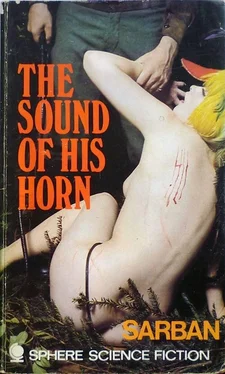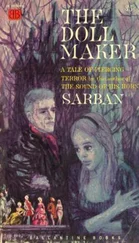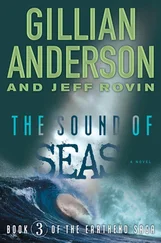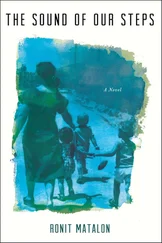Сарбан - The Sound of His Horn
Здесь есть возможность читать онлайн «Сарбан - The Sound of His Horn» весь текст электронной книги совершенно бесплатно (целиком полную версию без сокращений). В некоторых случаях можно слушать аудио, скачать через торрент в формате fb2 и присутствует краткое содержание. Жанр: Альтернативная история, на английском языке. Описание произведения, (предисловие) а так же отзывы посетителей доступны на портале библиотеки ЛибКат.
- Название:The Sound of His Horn
- Автор:
- Жанр:
- Год:неизвестен
- ISBN:нет данных
- Рейтинг книги:4 / 5. Голосов: 1
-
Избранное:Добавить в избранное
- Отзывы:
-
Ваша оценка:
- 80
- 1
- 2
- 3
- 4
- 5
The Sound of His Horn: краткое содержание, описание и аннотация
Предлагаем к чтению аннотацию, описание, краткое содержание или предисловие (зависит от того, что написал сам автор книги «The Sound of His Horn»). Если вы не нашли необходимую информацию о книге — напишите в комментариях, мы постараемся отыскать её.
The Sound of His Horn — читать онлайн бесплатно полную книгу (весь текст) целиком
Ниже представлен текст книги, разбитый по страницам. Система сохранения места последней прочитанной страницы, позволяет с удобством читать онлайн бесплатно книгу «The Sound of His Horn», без необходимости каждый раз заново искать на чём Вы остановились. Поставьте закладку, и сможете в любой момент перейти на страницу, на которой закончили чтение.
Интервал:
Закладка:
With all this said, it remains true that The Sound of His Horn is a fantasy, not least in the extra sense that (as it would take a very unsophisticated reader not to see) the propelling force of the book, what gives it its irresistible energy and conviction, is a sexual «fantasy» uniting several features of abnormal psychology–I use the word abnormal in a purely descriptive, not emotive, sense. The whole notion of hunting with girls as the quarry; the use of savage dogs in the pursuit; the selective nudity of the girls' costumes; the details of the way they are trussed up before being handed over to their captors; the cat-women, similarly half-undressed but with taloned gloves on their hands, who tear living deer to pieces and eat them; the third set of girls lined up as living candle-bearing statues; all these things could be paralleled from many a couch-side notebook. Alan Querdilion watches and reports everything with horror and revulsion, but at length and in detail, and there is a lot to watch and report.
It is not difficult to see in what is described here a fascinated enjoyment of sadistic fancies, and in the attitude of the describer a hypocritical moral revolt inserted to enable author and reader to retain their self-respect while continuing to enjoy themselves. Some people, having got this far in analysis, may find it hard to go on reading the book with pleasure. I understand this reaction, but I do feel it simplifies things too much. There need be nothing hypocritical in Querdilion's attitude, for we are not to assume that sadism is incompatible with moral feeling (though I admit that the two don't actually go hand in hand). More important, much of the novel is taken up with Querdilion himself being hunted, and I can find no indication that he or Sarban are secretly getting some discreditable thrill out of that. To quote a parallel case, Bram Stoker may have had a private obsession which he expressed as vampirism in Dracula, but this suspicion doesn't make us feel that the terror experienced by Jonathan Harker and Dr. Seward, Dracula's opponents, is somehow not important, or forced, or unreal, nor is the book as a whole thereby rendered in any way suspect.
A less obvious, and perhaps less close, parallel is provided by some of the earlier poems of Keats, which can be read as autoerotic fantasies. In The Eve of St. Agnes we find, as well as straightforward sexual elements, a characteristic obsession with elaborate foods and drinks, with rich furnishings and apparel, with nobility and protocol, with the past, with physical danger, all of which reappears to an uncanny degree of exactitude in The Sound of His Horn. But to read the poem in this way, however interesting to the amateur psychologist, is to do it less than justice as a poem, and on its different level Sarban's work can claim the same kind of freedom from moral censure. Moreover, there is something to be said for the view that fantasy of this sort (like the western with its ruthlessness, its fights and shootings) can have a therapeutic value by enacting sexual and other «fantasies» at a safe remove from reality. Alternatively, the eventual fate of the girl Kit North, Querdilion's ally, furnishes a telling criticism of the original «fantasies» by demonstrating what they really amount to in terms of human irresponsibility and pain, by revealing Count von Hackelnberg, the sadistic master-huntsman, in all his brutishness. In any event, The Sound of His Horn strikes me as far less repugnant than many nonfantasy novels whose moral obliquities are less overt.
Perhaps I wouldn't have cared to go as far as this in my defense if I didn't believe so much in the literary qualities of the book. The gradually accelerating narrative, with its chain of horrors that close in on Querdilion with equal inevitability, is set out in a prose that falls occasionally into stiffness but much more often strikes the reader hard with its nervous intensity, its power of excited visualization in detail and its freshness. It is a style equally removed from the would-be poetical whimsicality of so many stories of fantasy and the flat anonymous woodenness or toughy banality of so much science fiction. The scene that remains most vividly in the memory is, appropriately, the final one at the electrified fence that borders the Count's domain– the dead girl, the hideous parody of a hunting party with its apparatus of cat-girls and dog-boys and bloodhounds, Hackelnberg himself with his (rightly) inexplicable sparing of Querdilion and mysterious final utterance, above all the play of moonlight and shadow, the shimmering of the lethal fence and the blinding beams of the watchtower searchlights. If Orson Welles can get onto a horse I know whom I would choose to film all this.
The Sound of His Horn has its aural effects too, not less haunting. The first intimation of what may be in store for Alan Querdilion is the sounds he hears at night in his warm hospital bed: «they were notes of a horn, sounded at long intervals, each one as lonely in the pitch dark and utter silence, as one single sail on a wide sea.» From then on this eerie and impressive image, encountered by day or night, near or far, never recurs without bringing a chill. In its archaic associations, its evocation of pageantry, its reminder of the hunter's carefree gusto together with the terror of the hunted, it sums up the whole content and atmosphere of this novel, this strange combination of daydream and nightmare. So compelling is it that I shall always feel a slight twinge whenever I am reminded of the innocent English hunting song from which the title is taken.
1
«It's the terror that's unspeakable.»
We all looked at Alan Querdilion. It was the first time he had spoken in the argument; almost the first time he had spoken since dinner. He had merely sat there smoking his pipe and looking from one speaker to the other with that look of mild wonder on his face which seemed to be habitual with him nowadays: a look that reminded me not so much of a child's innocence, as of the simpleness of a savage to whom the sound of your strange voice is a wonder distracting him from attention to the sense of what you are saying. After observing that look for three days I understood what his mother meant when she had said privately and sadly to me that the Germans had not released all of Alan from prison in 1945.
I had not seen Alan for nearly ten years, since the day in 1939 when he went off to join his ship as a lieutenant of the R. N. V. R. Perhaps one assumes too readily that time and a bitter war are great changers of character: later, I was astonished that I had been so little troubled to mark the change in Alan. Even that transformation from the buoyant, self-confident, gay young man of abounding energy, of such prowess in all sports, to this silent, inactive and wondering creature, had been but a part of the general flatness and fading of the world and the subduing of strength and spirits that England seemed to have suffered since 1939. It was easy to forget that Alan had not been like that before.
Читать дальшеИнтервал:
Закладка:
Похожие книги на «The Sound of His Horn»
Представляем Вашему вниманию похожие книги на «The Sound of His Horn» списком для выбора. Мы отобрали схожую по названию и смыслу литературу в надежде предоставить читателям больше вариантов отыскать новые, интересные, ещё непрочитанные произведения.
Обсуждение, отзывы о книге «The Sound of His Horn» и просто собственные мнения читателей. Оставьте ваши комментарии, напишите, что Вы думаете о произведении, его смысле или главных героях. Укажите что конкретно понравилось, а что нет, и почему Вы так считаете.












